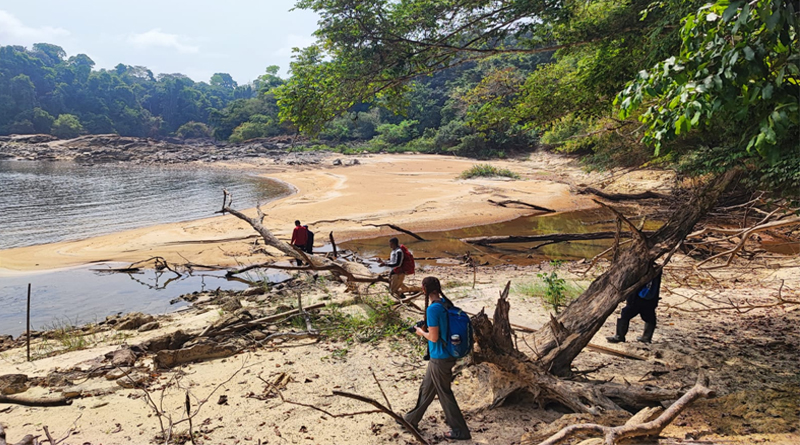SIERRA LEONE: TIPS FOR VISITORS
Travelling to Sierra Leone is not quite like your usual tourist destination. The country is still new to tourism, with the related infrastructure very much in its infancy, which makes now a fascinating time to visit. But this means you need a little more preparation than you might do for your average holiday. So, having been lucky enough to spend time in Sierra Leone here are my top tips:
You’ll need to apply, online, for a VISA before you leave. This should take three to four days. If it takes longer, assume it’s lost in the system, and apply again. This happened to me. My friend’s arrived in her inbox within a couple of days, two weeks later I was still waiting. There is no way to contact anyone, so you just have to wait. As I was nearing my departure date, I simple applied again, and this time received it within two days. The original visa never arrived, so I contacted my bank to cancel the original payment.
Buy a SIM for your mobile phone once you arrive. You can do this at the airport where they will also set it all up for you too. We paid about $30 and that gave us more than we needed for a 10-day trip.
There are two privately run boats that take passengers from Lunghi International Airport to Freetown. They are Sea Coach Express and Sea Bird Express. They are both much the same, so your choice. However, if you have arranged for someone to meet you when you disembark in Freetown, then it is important to get the right boat as they each go into different areas of the city. A KeKe (taxi) between the two doesn’t cost much (they aren’t that far apart) but you may struggle to get a KeKe at the port as most people will have pre-booked.
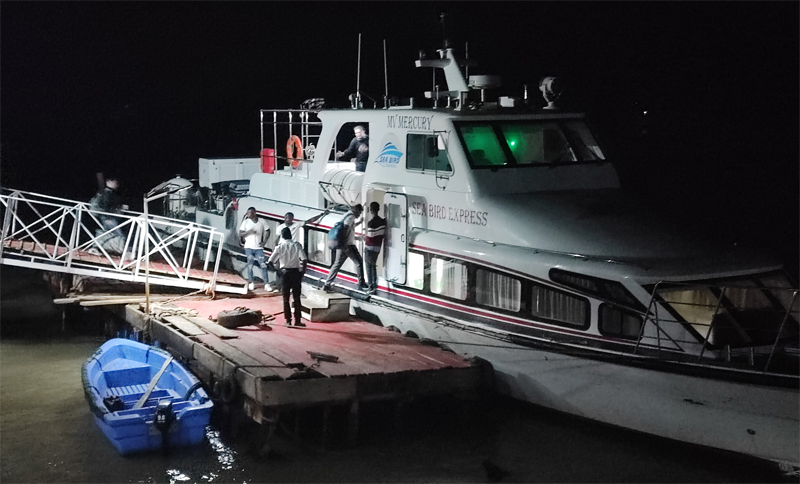
Sierra Leone has a closed currency, meaning you can’t buy it outside the country. Although you can pay for the boat transfer and a SIM card in US Dollars, you will need local currency for a KeKe, so I suggest changing at least a bit of money when you arrive at the airport, so you have some on you. We failed to do this, thinking Dollars would be Ok (which is what we’d been told) but that wasn’t the case. You need local currency. Fortunately, a very kind American family gave us enough to get a KeKe to meet our driver. You might not be so lucky!
US Dollars are a good currency to travel with as they are easily changed in supermarkets and at the Big Market, however take large denominations. Ensure you don’t take anything under $20 bills as these will be difficult to change, and even if you are lucky enough to find someone willing to exchange them, you will get a much lower rate. $50 and $100 bills are the best.
The KeKe (like a TukTuk) is a great way to get around. If you find a driver you like, take his number so you can call him, especially if you are staying on the outskirts of Freetown. You’ll need to pay cash (local currency) and keep your phones, bags and purses firmly hidden inside the KeKe while travelling. A KeKe can also manage a couple of suitcases in the back, so they really are a very versatile, and fun, way to travel.
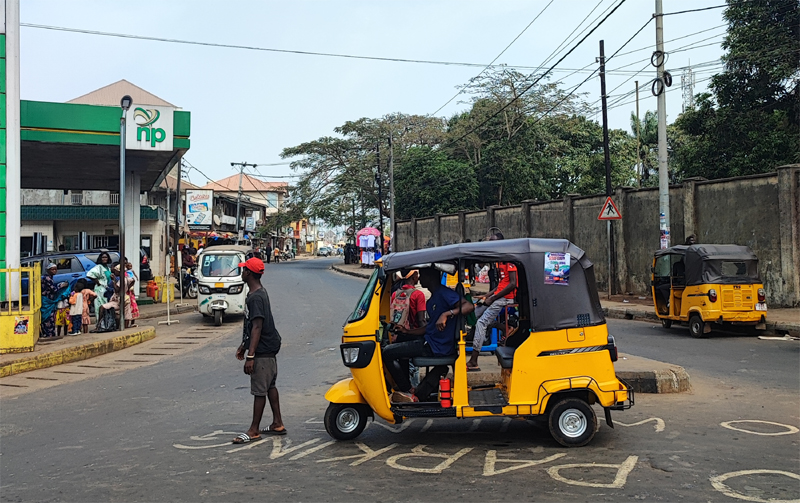
Pack a power-bank so you can recharge your phone etc. Many places might say they have electricity, but this will often turn out to be lights only and nowhere you can plug anything in.
There are places where you can pay to have your phone etc. charged. These are usually small huts powered by generators. You leave your phone with them and come back to pick it up later.
Pack a small electric (rechargeable) fan – you will be very grateful for it at night.
If you have favourite snacks from home, bring a few with you, as these sorts of items can be difficult to find.
If you plan to stay in a local roadside guest house, bring a sheet or sleeping liner with you as the laundry can be an irregular affair.
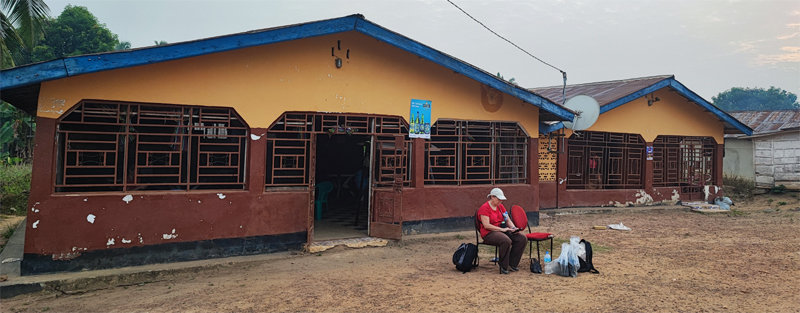
Bring compostable wet wipes – they are super handy as hand washing facilities can be difficult to find. Hand sanitiser is a good call too.
The local currency comes in small denominations, so you’ll end up with ‘wads’ of it. So, think carefully about how you will carry this and where you will keep it.
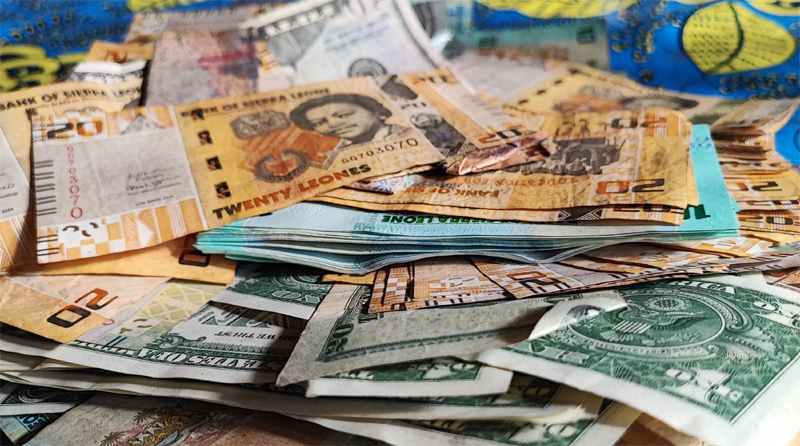
Remember, everything takes longer than you think! Allow extra time.
Your clothes will get sweaty and dusty, and laundry facilities are not readily available, so pack plenty of changes of clothes. Even hand washing can be tricky as the air is so humid it can take a couple of days for an item to dry.
Bring a toilet roll.
Bring a small notepad and pen for taking down telephone numbers and other information. We found we often needed this.
Pack a first aid kit.
Assume you can’t buy what you’ll need and be pleasantly surprised if you can!
Your shoes will get very dirty, and the dirt will get ingrained, so avoid wearing white or pale-coloured footwear.
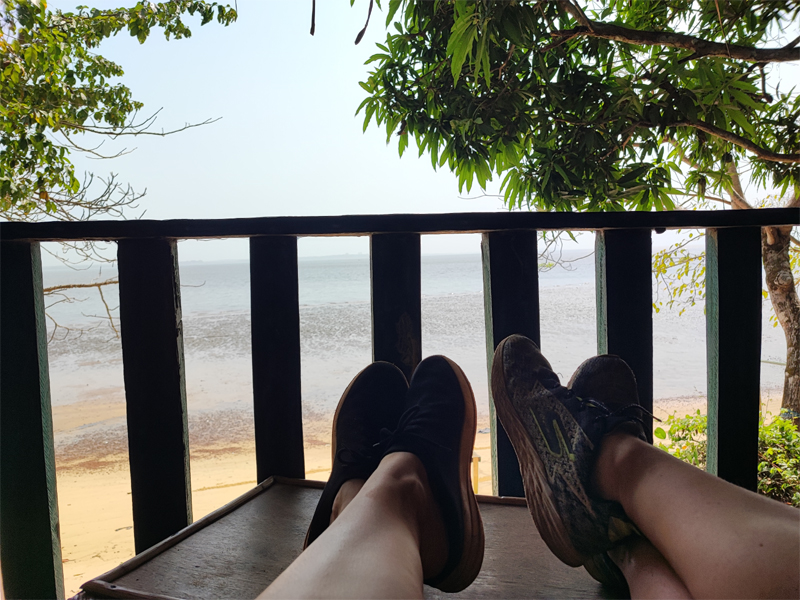
People are generally very helpful, but many will expect a small tip, so have small amounts of cash handy so you aren’t rummaging around and pulling out that ‘wad’ of cash.
Most places that offer accommodation (Tacugama Chimpanzee Sanctuary, Freetown hotels etc.) will be able to help arrange a driver or guide for you.
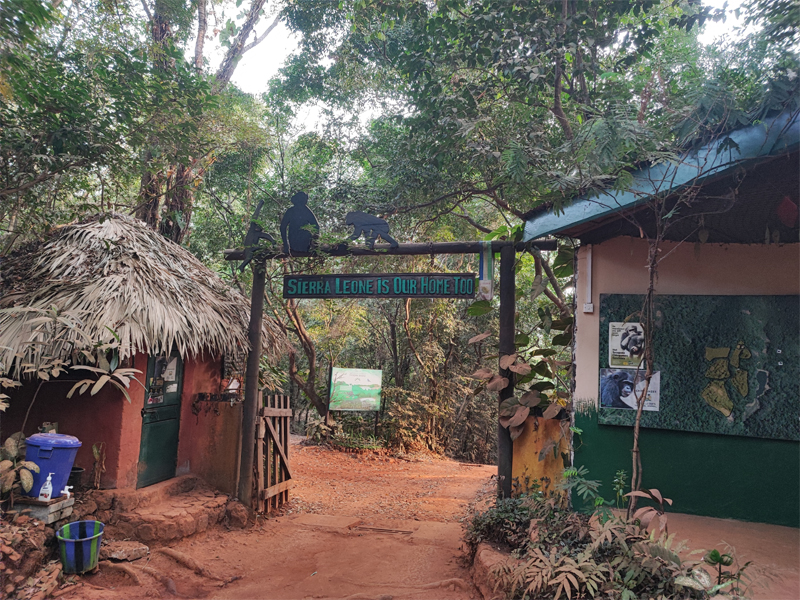
Pack plastic bags for your dirty clothes – they will be so dirty you’ll want them separated from the rest of your packing.
Elastic bands are surprisingly useful.
It gets very hot and sweaty, so if your thighs or other parts tend to chafe, pack some anti-chafing cream.
Washing in general can be a challenge if you head out of Freetown, so be aware that fancy hairstyles won’t last. Your hair will get sweaty and dusty. A hat might be a good idea.
Always ensure you have plenty of water. Water can be bought in both large and small plastic bottles from supermarkets and road-side vendors.
If you are prone to seasickness, bring tablets for the boat trip to/from Lunghi airport, and trips to other islands.
If you are a light sleeper, an eye-mask and ear plugs are worth considering.
Travel with a sense of adventure and openness. Sierra Leone is an amazing country to visit with warm, friendly people.
FACT BOX
Check entry requirements here: https://www.gov.uk/foreign-travel-advice/sierra-leone/entry-requirements
Visa: https://www.evisa.sl/
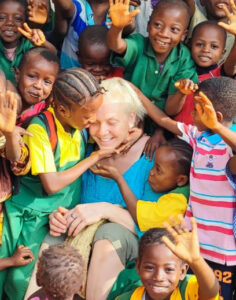 ABOUT THE AUTHOR
ABOUT THE AUTHOR
Chantal Cooke is an award-winning journalist and broadcaster and co-founder of PASSION for the PLANET.
Chantal is passionate about tourism being used as a force for good.
You can follow her adventures on Facebook and Twitter @chantalcooke and on Instagram @Chantaldcooke

